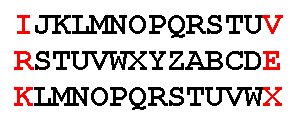A “decalogue of canons for observation in practical life,” sent by Thomas Jefferson to the new father of a baby boy:
- Never put off till tomorrow what you can do to-day.
- Never trouble another for what you can do yourself.
- Never spend your money before you have it.
- Never buy what you do not want, because it is cheap; it will be dear to you.
- Pride costs us more than hunger, thirst and cold.
- We never repent of having eaten too little.
- Nothing is troublesome that we do willingly.
- How much pain have cost us the evils which have never happened.
- Take things always by their smooth handle.
- When angry, count ten, before you speak; if very angry, an hundred.
It’s not clear what a smooth handle is. Possibly it refers to a saying by Epictetus: “Everything has two handles, one by which it can be borne, another by which it cannot.” Or possibly Jefferson was referring to the need for civil discourse.
See also Ben Franklin’s “13 virtues” and Poor Richard’s lesser-known maxims.





